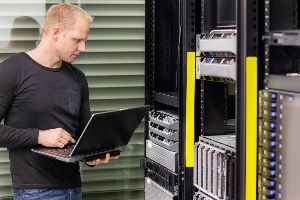3 Common Myths About Information Technology
# Some myths about IT services
Information technology is the use of computers, networks, and telecommunication systems to interact with data. With only a bit of instruction, most users can create, store, retrieve, and share information. However, many people lack technical expertise, which has allowed many misconceptions about the IT services industry to arise among businesses. Here's the truth behind a few of the most common.
Myths You Shouldn't Believe About Information Technology
1. Technology Can Solve All Problems
Many business managers and IT professionals alike believe the latest software or hardware installation can solve all of a company's issues. However, technology is only a tool. It can help you keep track of customer interactions, plan projects, interact with team members and suppliers, and budget time and money, but by itself, it can't close a sale or improve your brand image. Too many managers are more inclined to invest time and money in upgrades rather than giving attention to fundamentals, such as product development, promotion, and customer satisfaction.
2. One Backup Is Enough
Data about your processes, customers, suppliers, and competitors are essential to profitability. Therefore, you must keep copies of that information in a secure location. However, one copy isn't enough, particularly if you keep it onsite. An emergency on your premises, such as a fire, could wipe out all that crucial information and require thousands of hours to reproduce.
Instead, back your data up multiple times and store the information in different places. For instance, keep one in the Cloud and another on a secure server in a fireproof, leak-proof area.
3. Apple Computers Are Safe from Viruses
Apple products are generally well-designed and intuitive to operate. Because of that, they've also developed a reputation for invulnerability against computer viruses and malware as compared to the widely distributed Microsoft Windows. However, due to their newly found popularity, Apple products can experience malware attacks similar to PC's from hackers who are looking to capitalize on vulnerabilities and end user actions.
Apple devices are undoubtedly vulnerable to malware and require you to take the same security measures with your network and communications as you would with PCs. Secure your networks with firewalls and strong passwords, control who has access to your system, run next-gen anti-virus software regularly, enable Internet filtering, and stay current with security updates.
